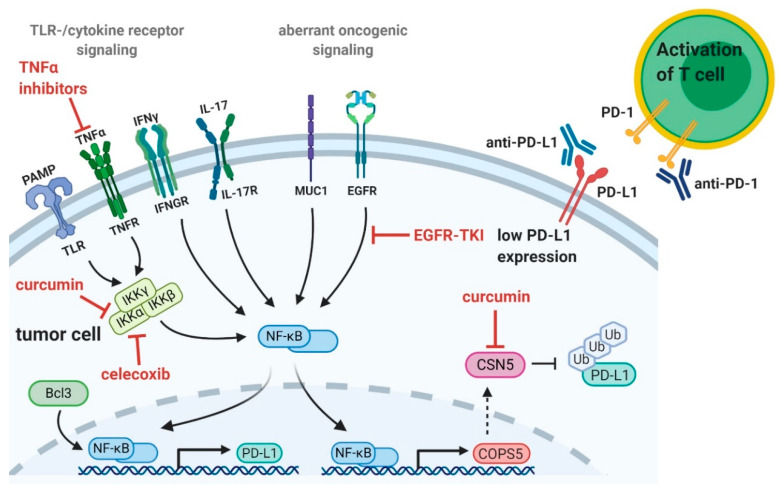Figure 2.
Combinatorial treatment approach of Nuclear factor-κB (NF-κB) inhibition and immune checkpoint blockade. Co-administration of nuclear factor κB (NF-κB) inhibitors and checkpoint blockade seems to be a promising approach to increase cancer patients’ response rates. NF-κB inhibition to reduce programmed-death ligand 1 (PD-L1) expression on tumor cells in combination with anti-PD-1/PD-L1 antibodies could be especially effective to enhance anti-tumor immunity. Curcumin and celecoxib can reduce PD-L1 levels by blocking IκB kinase (IKK) activity and consequently the NF-κB pathway [119,123]. Curcumin can also inhibit the fifth element of the COP9 signalosome (CSN5)-associated kinase activity leading to PD-L1 destabilization [38]. Blocking of oncogenic epidermal growth factor receptor (EGFR) signaling by EGFR-tyrosine kinase inhibitors (EGFR-TKIs) can attenuate NF-κB activity and reduce PD-L1 expression [103]. Combinatorial treatment of EGFR-TKIs and immune checkpoint blockade might prolong duration of response and prevent resistance [124,125]. Tumor necrosis factor α (TNFα) inhibition can reduce adverse events and increase efficacy of immune checkpoint blockade [126]. Arrows indicate paths to NF-κB activation, dotted arrows indicate protein translation and translocation, T-bars indicate inhibition. Figure 2 was created with BioRender.com.

